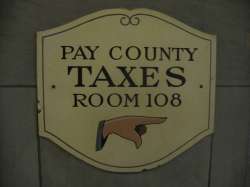Proposition 117 and How It Impacts Property Tax
July 30, 2015 7:48 pm,
The Arizona Property Tax Assessed Valuation Amendment, also known as Proposition 117, was on the November 6, 2012 general election ballot in the state of Arizona as a legislatively-referred constitutional amendment, where it was approved. This spells out some changes in the tax codes for Arizona properties.
This also means some changes for Arizona property owners. Proposition 117 seeks to limit the increases in property valuation for taxes. This would ideally shield owners from the kinds of spikes seen during real estate bubble of the last decades. Placing a 5 percent annual limit on how much the assessed value of properties can rise would hopefully do just that, according to the supporters of the amendment.
There are several problems with this plan. Lawyers here in Arizona are obligated to assist buyers and sellers in recognizing the potential for the assessment. Two main issues are the timing of when the Assessor takes action on the assessment and what types of improvement may trigger the assessor’s ability to assess.
The assessor does not need to take action immediately after any “change” in the property, so it could be three years after any such change before a valuation is increased.
Also, there is no definition of what constitutes a “change” in the property, although construction or a subdivision is clearly going to trigger a revised valuation due to a “change” in the property. The big unknown is how small a change will trigger a re-valuation, and we will not know that until some reported cases have set the boundaries for what amount of change causes the assessor to re-value.
These two unknowns require that both buyers and sellers of Arizona real property (and their attorneys) become familiar with the potential impact of the law, so that a buyer is not suddenly blindsided by an increased valuation on a newly acquired parcel, when that increased valuation is based on “changes” to the property made a year before she purchased the property. It is easy to imagine lots of litigation for failure to disclose on the part of the seller.
And buyer’s attorneys need to realize that they must alert their clients to this potential tax increase, prior to the time when a contract has hard earnest money.
The measure was intended to limit the increases in assessed valuation, and it will certainly do that for properties on which there have been no changes whatsoever. But any change might trigger the opposite effect, with a large and possibly unexpected assessed value increase, vastly in excess of the 5% cap.
With Proposition 117 going into effect this year and the commercial real estate market in Arizona still slowly recovering from its height in 2007, tax year 2015 presents a unique opportunity for taxpayers. A reduction in the 2015 tax year value will limit increases in value for tax years 2016 and beyond as commercial property values begin to appreciate.
Categorized in: News, Real Estate








